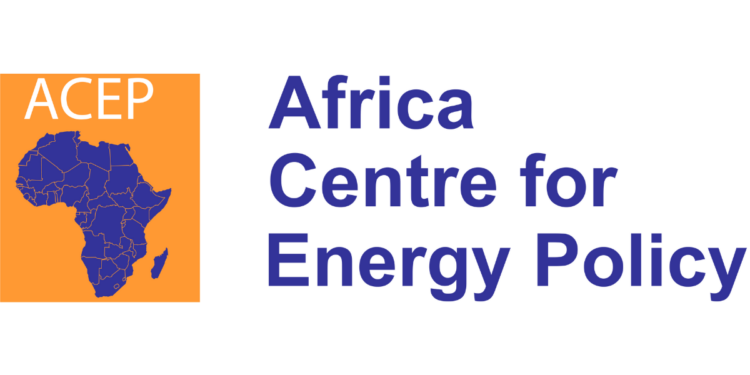ACEP Exposes Critical Flaws in Ghana’s Petroleum Sector Governance
The situation has been exacerbated by what ACEP terms as “ineffective policies” that have made Ghana less attractive to investors in the oil and gas sector.

Ghana’s troubled oil sector faces fresh scrutiny as the country’s leading energy think tank raises alarming concerns over data inconsistencies and governance issues in a key oil field appraisal programme.
The Africa Centre for Energy Policy (ACEP), a prominent energy sector watchdog, has issued a stark warning about technical discrepancies in Springfield Energy’s Afina-1x field appraisal programme, highlighting what it describes as significant data inconsistencies that could have far-reaching implications for Ghana’s petroleum sector.
- Advertisement -
At the heart of the controversy lies a 172-meter difference in Oil Water Contact (OWC) measurements between Springfield’s estimates and those used by the Ministry of Energy. This technical disparity has raised questions about the accuracy of initial unitization directives that awarded Springfield and its partners a 54.545% stake, with Eni and its partners receiving 45.455%.
- Advertisement -
“If the OWC provided in Springfield’s appraisal programme had been used from the outset, the Afina discovery would likely have required further work to assess its commercial viability,” ACEP stated in its release, suggesting that the initial unitization directive may have been premature.
The think tank’s intervention comes at a critical time for Ghana’s oil sector, which has been grappling with declining production and waning investor interest. The situation has been exacerbated by what ACEP terms as “ineffective policies” that have made Ghana less attractive to investors in the oil and gas sector.
Adding to the sector’s challenges is a proposed $50 million well re-entry programme, which ACEP argues raises significant value-for-money concerns. The costs will be partially borne by state entities Ghana National Petroleum Corporation (GNPC) and Explorco, potentially adding to the country’s financial burden at a time of fiscal constraints.
The revelations come against the backdrop of Ghana’s recent setback in international arbitration in July 2024, which ACEP describes as “embarrassing,” portraying Ghana as “unable to properly interpret its own laws.”
The country’s approach to sector management has also come under fire. “Instead of addressing technical issues in the sector using sound scientific approaches, the government has prioritized litigating investors,” ACEP noted in its statement.
These developments have broader implications for Ghana’s economic stability. The Ministry of Finance’s reliance on optimistic oil production forecasts had underpinned significant borrowings, intended to support the country’s financial commitments to markets and development banks.
- Advertisement -
The timing of these revelations is particularly crucial as the global energy sector undergoes a fundamental transition. ACEP warns that as the world shifts towards decarbonization, ensuring a fair and transparent oil and gas industry in Ghana is more critical than ever.
“There is a growing perception that hidden interests are being prioritized over investment and development in Ghana’s upstream sector,” the think tank cautioned, pointing to what it sees as a pattern of misgovernance and political interference.
The controversy surrounding the Afina field also highlights broader regulatory failures. ACEP questions the oversight of both the Petroleum Commission and the Ministry of Energy, suggesting their actions have resulted in “unnecessary financial burdens for Ghana.”
In what appears to be a call for urgent reform, ACEP emphasized the need for collaborative approaches, particularly in studies confirming connectivity between the Afina and Sankofa fields. The think tank suggests that involving all parties, including Eni, would enhance credibility and avoid further disputes.
As Ghana grapples with these challenges, the country faces a critical juncture in its petroleum sector development. With the global energy landscape rapidly evolving, the pressure is mounting on Ghanaian authorities to address these governance issues and restore investor confidence in a sector once seen as a key driver of economic growth.
Below is the full Statement from ACEP
Source:norvanreports.com
- Advertisement -






